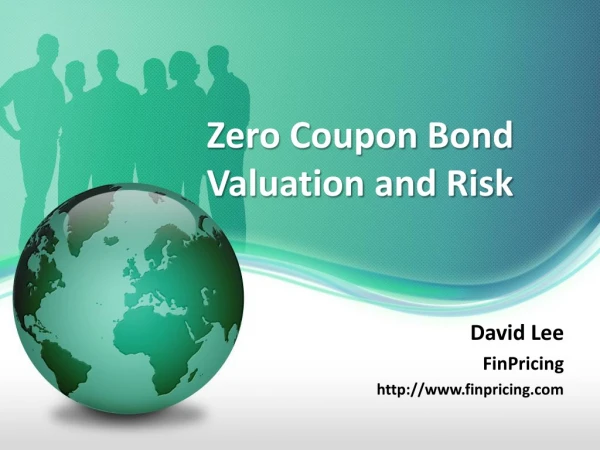Explaining Zero Coupon Bonds and Valuation
A company can raise capital in financial markets either by issuing equities or bonds. A zero coupon bond is a bond that doesn’t pay interest/coupon but instead pays one lump sum face value at maturity. Investors buy zero coupon bonds at a deep discount from their face value. A zero coupon bond generates gains from the difference between the purchase price and the face value while a coupon bond produces gains from the regular distribution of coupon/interest. Zero coupon bonds are issued at a deep discount and repaid the face value at maturity. The greater the length of the maturity is the cheaper price a bond has. Unlike other bonds, the investor’s return is the difference between the purchase price and the face value. An investor preferring a long-term investment may purchase zero coupon bonds such as saving money for children’s college tuition. The deep discount helps the investor grow a small amount of money into a sizable sum over several years. Normally investors buy zero coupon bonds when interest rates are high. This presentation gives an overview of zero coupon bond product and valuation. You can more information at http://www.finpricing.com/lib/FiZeroBond.html
★
★
★
★
★
351 views • 9 slides
